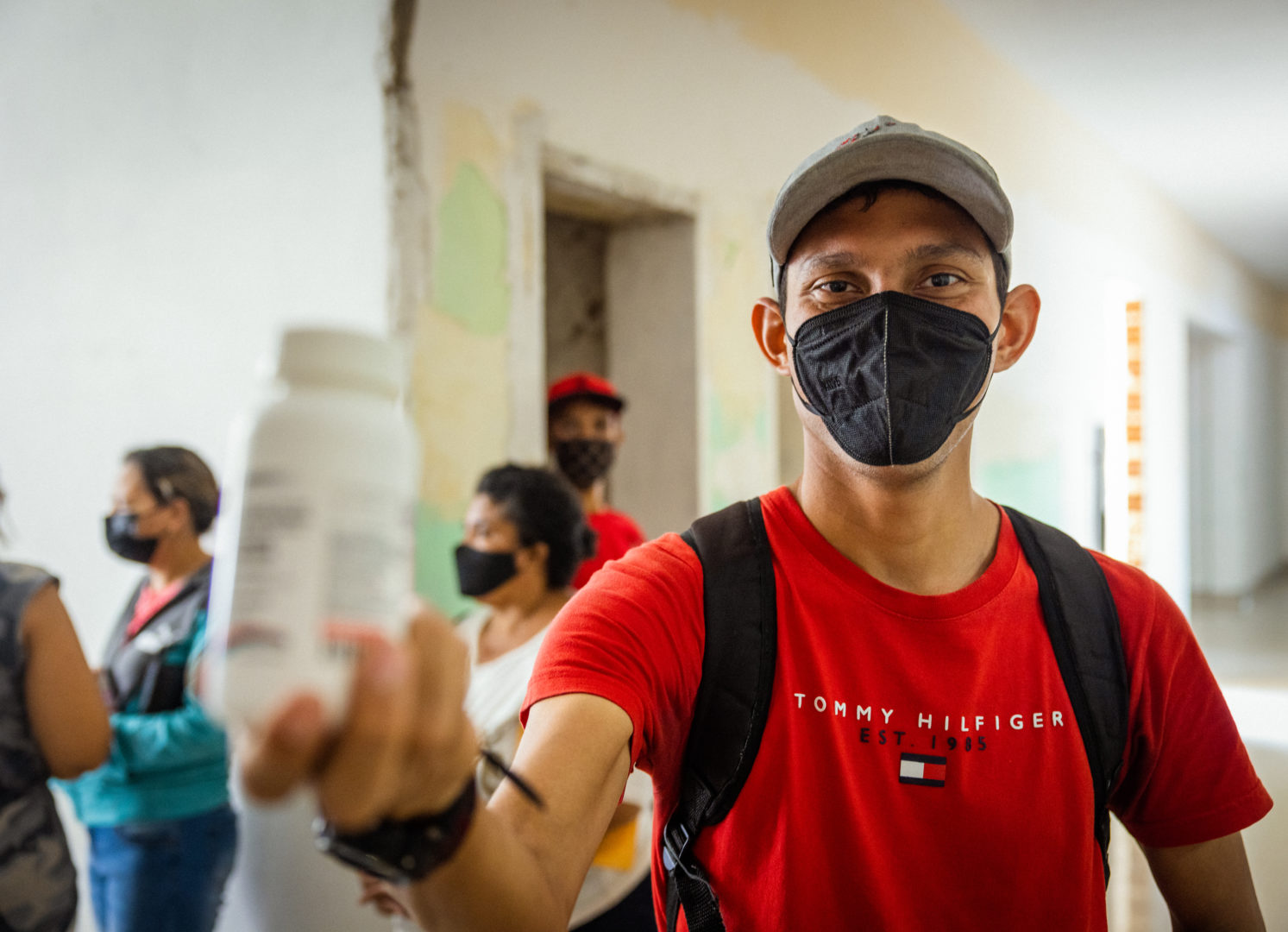

Not just two steps forward but 100 leaps forward
Realizing rights
As part of the “Realizing rights” chapter, we have talked to the people who made the decriminalization of sex work in Belgium a reality.
SCROLL DOWN
After three and a half years of negotiating, lobbying, coalition building, and a certain amount of backlash, Daan Bauwens still couldn’t believe it when the Belgian parliament voted in favor of decriminalizing sex work in mid-March 2022.
“Up until the night the parliament voted there was still so much uncertainty and lots of legal manoeuvering that I could not be certain it would pass,” said the current director of the Union of the sex workers organized for independence, UTSOPI, a Belgian non-governmental organization that advocates for the rights of sex workers.
He described the experience as worthy of a bumpy roller-coaster ride.

First, the project needed to come together so Violett, a socio-medical organization for sex workers, collaborated with UTSOPI in 2018 and hired Mr Bauwens as a project manager.
“The idea was to get sex workers to actively speak up for themselves and start a national movement,” said Mr Bauwens.
It was slow going but he felt people were motivated. And then COVID-19 struck.
Work stopped, people stayed home and lockdown measures had to be followed.
Ruth (last name withheld) said COVID-19 hit the sex worker community particularly hard. “We were anxious about the virus like everyone else but what was worse is that we lost our livelihood overnight,” she said. She has been a sex worker for 6 years living a life that she described as, ‘invisible.’ “Because of the law and stigma, I had to rent an apartment that belonged to a client, which was overpriced, and depleted my savings during lockdown.”
Certain news reports, however, claimed that sex workers disregarded the restrictions and went about their business. UTSOPI went on the offensive calling the media coverage stigmatizing. They also used the opportunity to shine a light on the inequalities regarding workers’ rights.
When the media did stories about sex workers having to queue in food lines to feed their kids, opinions started to shift a bit, he said.
Meanwhile UTSOPI stepped in and helped with basics and other essentials during the first year of COVID. They also distributed 35 000 euros, following a crowdfunding effort, helping hundreds of sex workers.
“This gave us legitimacy because first of all it showed that sex workers are not defenseless victims without agency, secondly, sex workers can speak for themselves and thirdly they are capable of organizing and defending each other,” Mr Bauwens said.

Feeling idle, Ruth started to volunteer with UTSOPI distributing food packages to fellow sex workers in the north of Brussels. She now works for them as a community outreach person.
“Ironically, the crisis and media attention worked in our favour,” Mr Bauwens said. The Ministry of Social Integration and the Fight Against Poverty gave 500 000 euros to various Belgian organizations at the end of 2020 to offset the lack of aid to sex workers.
Another boost came when an outspoken member of the Flemish Liberal Party, Jacinta de Roeck, asked UTSOPI for a concept note on what could be done to move the cursor on sex workers’ rights.

For UTSOPI it was simple: decriminalize sex work. Until then, Belgium tolerated sex work and despite many cities showcasing red light districts, all third parties were criminalized. That meant that renting a house to a sex worker or letting a sex worker have a bank account could be worthy of prosecution. “Inevitably, this work was unregulated and working conditions were far from optimum,” Mr Bauwens said. He also said that the stigma or fear of losing one’s workplace and the lack of clarity encourage people to work underground, increasing health risks and violence.
When the concept note was taken up in the coalition agreement in the fall of 2020, UTSOPI rejoiced. Political parties started contacting them for expert advice.
At this time Mr Bauwens believed something was bound to happen. In fact, the real battle had just begun.
At the European level, organizations lobbied against legalizing sex work, saying it was a magnet for human trafficking.

He drafted a political note as a lobbying cheat sheet and met countless parliamentarians with UTSOPI members.
“The backlash from various groups never ceased and I must say a lot were false claims,” he said.
“Some people claimed our proposed change in the law would lead to no rapist being persecuted, that prostitution of minors would become legal and that pimping would be authorized.
“It was all absurd and what upsets us more is that these groups are appropriating people’s suffering without asking for their permission,” Mr Bauwens said.
Once the Belgian decriminalization bill came out on 1 April, attacks came from all sides and worsened when the parliamentary hearings began.

UTSOPI's Daan Bauwens on Belgium decriminalizing sex work

Save Lives: Decriminalize - Involve community-led organizations
Mr Bauwens felt like the decriminalization efforts had stalled and that the bill would become a reality twenty years from now.
But he did not give up so easily. He worked with his colleagues non-stop to get 13 different human rights and sex worker associations as well as NGOs fighting human trafficking to create a coalition.
“Ultimately we wanted the same thing,” he said. “Our coming together reassured people who had been frightened about potential outcomes… and we bullet-proofed the law.”
A month after the Justice committee had voted on Vincent Van Quickenborne’s, Belgian Minister of Justice proposed bill, the parliament voted on it late evening March 17. Coalition members had spent hours waiting. At 1:35 am, the bill was approved.
Mr Van Quickenborne said he felt relieved and satisfied. “After a long parliamentary process, we finally achieved the result we had been working towards for such a long time and proud, too,” the Minister said. “We are the second country in the world to give such extensive recognition and rights to sex workers.”
Mr Bauwens agreed saying that it was like a revolution. “This is not two steps forward but more like 100 leaps forward,” he said.
For Ruth, however, this is a step up a long flight of stairs. “This is a new era for us but the pressure to get it right is on,” she said. “In this new era for us, will I be able to walk into a bank and deposit cash regularly? Will people’s mentalities change?” she added, saying that she was only beginning to realize the repercussions of the new law.

UTSOPI’s current task involves ironing out the law by establishing a legal framework for sex work. “Like any other job, whether it’s in construction or in a restaurant or in a school, there is a labour law to respect and that’s what we are asking for,” Mr Bauwens said.
He admitted there were more risks in sex work but imposing contracts and job specific conditions would be beneficial to all. In addition, no employer could skirt hygiene and minimal health rules.
That’s why UTSOPI advocates for decriminalization, fearing that legalizing sex work will mount to countless regulations and extra rules, usually driving sex work under the radar. “This sector needs to be treated as any other,” he insisted.

For the Belgian Minister of Justice, the existence of sex work is an undeniable reality in every society. “There are legitimate concerns about the dark side of sex work like exploitation and human trafficking, but our security services and justice system are in fact better equipped to combat these phenomena when there is a clear distinction between legal and illegal activities,” Mr Van Quickenborne said. “I hope many other countries will soon follow our example.”
With the legal reform in vigour in Belgium on 1 June, UTSOPI has basked in media attention and the community is ecstatic. Despite the recognition, the NGO has been struggling financially, hit by dwindling government support after the COVID crisis.
They hope their fundraising campaign will let them pursue their most pressing work getting the labour code presented to parliament in December 2022. Regardless, Mr Bauwens remains dedicated to the cause.
“I have never known or been part of a movement with so much humanity and authenticity,” the former journalist said. “For those reasons, we will win this battle.”
Law reform is not easy, but it is possible. In the past year, Belgium and Australia have removed laws criminalizing sex work, and Zimbabwe has decriminalized HIV exposure, non-disclosure, and transmission.
Several countries have removed punitive laws that target or affect key populations, including Angola, Antigua and Barbuda and Seychelles, which have decriminalized same-sex sexual activity, while New Zealand removed travel restrictions relating to HIV.
And more recently in India, the Supreme Court issued directions on protecting the wellbeing and fundamental rights of sex workers under the Indian constitution, including the right to life and liberty with respect for an individual’s dignity. The ruling calls for sex workers who experience sexual violence to have full access to protection and support services like the general population and that possessing condoms should not be treated as a criminal matter. It also notes that, the police and other relevant authorities should receive appropriate training to ensure that they are aware of sex workers’ rights and ensure they are upheld.
However, despite such encouraging reforms, the world is not on track to ensure that less than 10% of countries have punitive legal and policy environments. In 2021, 135 countries explicitly criminalized or otherwise prosecuted HIV exposure, non-disclosure or transmission; 24 countries criminalized and/or prosecuted transgender persons; 133 countries criminalized at least one aspect of sex work; and 71 countries criminalized consensual same-sex sexual activity, according to UNAIDS. In addition, several countries still place restrictions on entry into their territory for people living with HIV, while others require mandatory HIV testing, for example for marriage certificates or for performing certain professions. Legislation on sexual consent that undermines the right to health of adolescents and their sexual and reproductive health and rights is also reported.
Such laws and sanctions stigmatize already marginalized populations. This has serious consequences for people living with or at risk of infection with HIV, who are often reluctant to seek testing and treatment. As Emily Christie, Human Rights and Law Advisor at UNAIDS said, “With criminalization, it’s not because they [marginalized groups] are at a higher risk of HIV that they are criminalized, rather it’s because they are criminalized that they are at a higher risk of HIV. It’s criminalization that increases vulnerability.”
Decriminalisation saves lives, and helps advance the end of the AIDS pandemic.
All pictures: UNAIDS/Miguel Soll
Pervasive discrimination and structural inequalities are forcing ostracized populations further into the shadows and sabotaging efforts to end the AIDS epidemic. In this chapter, read more about:
